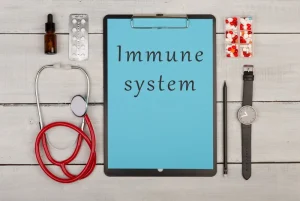
Based on the information above, we can conclude that addiction and dependence are not the same, although they are often confused or used interchangeably. While both involve the use of substances and can coexist, they refer to different aspects of substance use. The National Institute on Drug Abusenotes that tolerance occurs in a drug or alcohol user when the user needs more of the drug or alcohol to get the same effect that occurred during the initial periods of intake. It’s a grim scenario that unfortunately is found in many drug abuse cases year after year. It is important to keep in mind that physical dependence can occur without the patient developing a SUD.

Health Conditions
- Addiction is considered “highly treatable.” But it can take a few tries for the therapy to be fully effective.
- For example, opioid withdrawal may cause anxiety and insomnia, while opioid intoxication typically leads to calmness and drowsiness.
- Lorazepam was prescribed to patients, primarily as hypnotic during the 1st week at night time only and continued if the patient continued to have problems related to initiation and maintenance of sleep.
The drug causes few side effects and does not add to the intoxication effect of alcohol. Considering that baclofen is safe in those with liver cirrhosis and reduces withdrawal symptoms due to alcohol, a controlled trial comparing it with standard treatment is required. A person’s genes, ethnicity, gender, and the presence of mental health disorders may all increase the risk of developing an addiction.
Addiction vs Dependence: Understanding the Key Differences and Implications
- You may assume that certain substances are more addictive than others, and that is partially true, Mr. Kump says.
- However, the primary characteristic that determines it’s an addiction and not dependence is the combination of both physical and mental dependence.
- One particular area of misinformation concerns how the use of language is employed when describing topics related to addiction.
- They will tend to be secretive about their use and will need the drug to function normally.
- People who are addicted to a substance use it even if it has no medical benefit.
Drug abuse and addiction (now more commonly known as “substance use disorder” or “problematic substance use”) have led to a major health crisis in the U.S. Not only are millions of Americans struggling with substance use disorder, but in 2014 alone, there were more than 45,000 overdose deaths, over half of which involved prescription opioids and heroin. Alcohol abuse is also a continuing problem in the country, with over 65 million people binge drinking in the past month. Recognizing the difference between an addiction and substance dependence can help to better understand the nature of addiction. Knowing as much as possible about addiction and dependence can also be a valuable tool in achieving recovery. It is also important to realize that while a dependence may be present without addiction, substance dependencies frequently lead to addiction.

Differences Between Substance Abuse, Dependence, & Addiction
This is where the mind gets hooked on the emotional or mental effects of a substance or behavior. It’s the voice in your head that says, “Just one more hit/drink/game, and then I’ll feel better.” True addiction often involves this psychological component, making it a formidable foe in the battle for recovery. We know that the difference between addiction and dependence is often challenging addiction vs dependence to understand.
Understanding the distinctions between addiction, tolerance, and dependence is crucial for accurate diagnosis and effective treatment. While these terms are often used interchangeably, they each represent different aspects of substance use and related disorders. Clear Recovery Center’s Virtual IOP provides clients with therapeutic support for burnout, depression, anxiety, chronic fatigue and stress. Detoxification treatment may need to be administered to those with substance dependence due to the dangerous nature of some withdrawal symptoms. Research suggests that no treatment method is superior, but that social support is very important and that organizations such as AA and NA have better than average success rates in reducing relapse. A patient with a SUD begins to lose the ability to effectively prioritize their well-being over the continued use of the drug.
Which Substances Are Addictive?
If a person uses many drugs and develops a physical dependence on these drugs, that person is usually described as dependent. Speaking of prescriptions, let’s talk about the elephant in the room – the role of prescription medications in dependence and addiction. It’s a thorny issue, like trying to navigate a rosebush maze blindfolded. Many medications, particularly those for pain management or anxiety, can lead to physical dependence with long-term use. It’s when the use goes beyond medical necessity, when the person starts doctor-shopping or using the medication to cope with life stressors, that we enter drug addiction territory.
However, the main characteristic that distinguishes addiction from dependence is the combination of mental and physical dependence with uncontrollable behavior in obtaining and using a substance. Addiction is marked by a change in behavior caused by the biochemical changes in the brain after continued substance abuse. Substance use becomes the main priority of the addict, regardless of the harm they may cause to themselves or others. An addiction causes people to act irrationally when they don’t have the substance they are addicted to in their system. If that history lesson sounded confusing, that’s because it is, and there’s no way to simplify what happened.
While different types of substances can cause various signs and symptoms, being addicted to any type of substance results in the same action on the addiction center in the brain. Tolerance is an early indicator of both physical and psychological dependence, as a person must use more to reach the same level of intoxication. The increasing tolerance can lead to more frequent and larger doses, often without the person realizing the extent of this gradual escalation. A treatment center will attempt to verify your health insurance benefits and/or necessary authorizations on your behalf. We cannot guarantee payment or verification eligibility as conveyed by your health insurance provider will be accurate and complete. Payment of benefits are subject to all terms, conditions, limitations, and exclusions of the member’s contract at time of service.

Once you have a tolerance, you might start taking higher doses to get the same effect. You might also become physically dependent https://ecosoberhouse.com/article/sober-life/ on the drug, and feel withdrawal symptoms if you try to quit. While it isn’t possible to develop an addiction to a substance without repeated use, addictions can form more quickly and easily in certain people. Genetic, neurological, or psychological factors can all increase a person’s likelihood of developing a drug or alcohol dependence. In addition, stress, trauma, and hardship are also known ‘risk factors’ that make addiction more likely.
